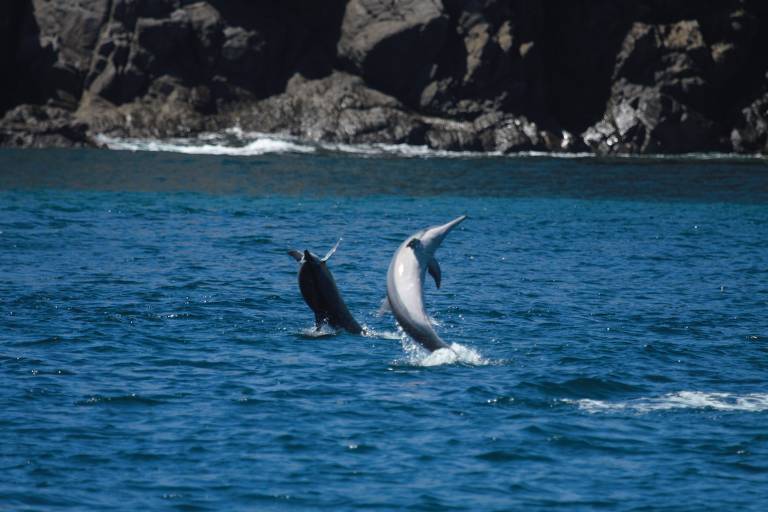The increase in boat tours around the Fernando de Noronha archipelago has been disturbing spinner dolphins, causing them to change their behavior and become more vulnerable to predators.
These findings come from the Spinner Dolphin Project, which has been working on species preservation in the region since 1990.
These dolphins are known for the spin they perform along their own axis when leaping out of the water. They can grow up to 2.4 meters (7.9 feet) long and weigh nearly 80 kilograms (176 pounds).

Spinner dolphins leap out of the water in Fernando de Noronha. - Projeto Golfinho Rotador
In Noronha, the dolphins follow a well-defined routine and seek out specific parts of the archipelago to rest, reproduce, care for their young, and protect themselves from sharks, explains José Martins da Silva Júnior, coordinator of the Spinner Dolphin Project.
The oceanographer notes that until 2003, about five boats would pass through the bay each day. By 2017, the number had risen to 16, and today, there are more than 20 boats.
Researchers have also observed that male dolphins following the boats take on a guard-like stance, staying alert to potential threats. The more energy they expend on this behavior and the less time they have to rest, the more vulnerable they become to predators.
Silva Júnior says that increased tourism in Noronha is not the only factor altering the dolphins' habits. Climate change has also been affecting the distribution of food in the oceans, and the population of tiger sharks—one of their predators—is growing.
However, the number of tourists and their behavior can be more easily controlled to ensure the animals' well-being and protection.
[Read the article in the original language](https://www1.folha.uol.com.br/ambiente/2025/03/golfinhos-de-fernando-de-noronha-mudam-habitos-devido-a-aumento-de-barcos-e-turistas.shtml)